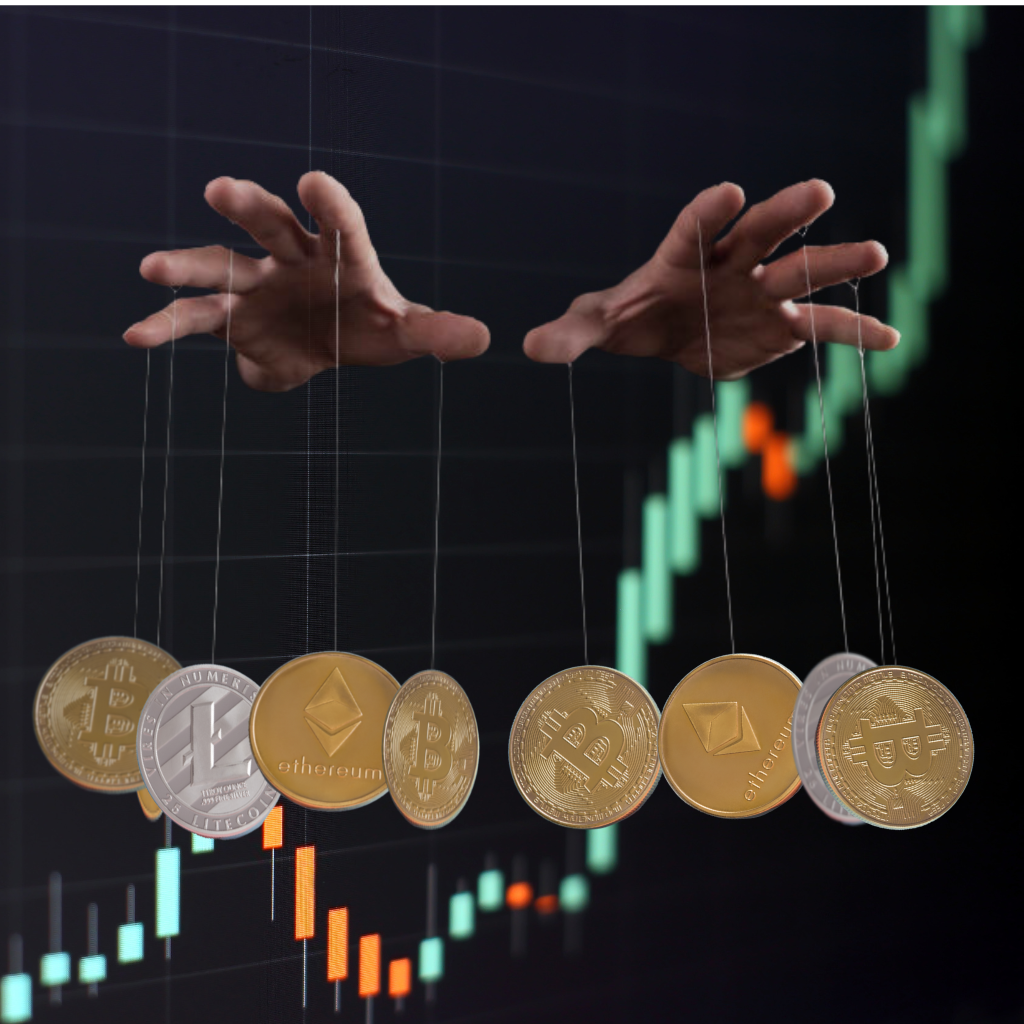When Bitcoin Is Up, Ethical Commentary Is Down
Ethical concerns tend to ebb and flow with the market’s fortunes. When Bitcoin (BTC) and other major digital assets are surging, headlines overflow with bullish sentiment, and the harsh realities of cryptocurrency trading often fade into the background. However, when the market sours, a different narrative emerges—one that scrutinizes the practices of “market makers” and highlights the ethical concerns inherent to cryptocurrency exchanges.
Market makers contribute more to the daily fluctuations of price than any other single factor.
I thought, now that Bitcoin (BTC) is looking poised to have at least a few months of backwinds, I should be one of the few in this moment of time to write about the role “market makers” play in both enabling liquidity and fostering potential unethical practices, and why the relationship between the two is complex and problematic.
There’s a key thing I’d like to emphasize: the market makers are necessary for an exchange to function smoothly (at least with how the free market cryptocurrency exchanges operate today) and I don’t intend to demonize the market makers themselves. I would like to be one of the few to shed light on this wild aspect of cryptocurrency trading that nobody talks about because it definitely doesn’t inspire people to start converting their fiat (government-issued currency) into crypto coins. Market makers contribute more to the daily fluctuations of price of cryptocurrency than any other single factor, including economic events.
The Role of Market Makers: Enablers of Liquidity
At the heart of any liquid market, whether traditional or cryptocurrency-based, are market makers. Market makers are entities or individuals who provide liquidity by offering to buy and sell assets at specified prices, thus creating a spread. Their primary goal is to ensure that buyers and sellers can execute trades without significant delays or price discrepancies. This role is especially critical in volatile markets like cryptocurrency, where liquidity can be scarce and price movements are unpredictable.
Market makers are crucial to the operation of cryptocurrency exchanges because they stabilize prices, create market depth, and prevent drastic fluctuations that could undermine investor confidence. Without them, exchanges would be prone to large price swings, making it difficult for traders to enter or exit positions effectively.
However, while market makers are essential to the ecosystem, their role places them in a position where they can wield considerable influence over the market, and this is where ethical concerns begin to emerge.
The Ethical Quandary: Liquidity Versus Manipulation
The problem with market makers is not their existence but their potential to manipulate markets for personal gain. In an ideal world, market makers would focus solely on providing liquidity and maintaining a healthy trading environment. In reality, many market makers are motivated by profit, and some are willing to engage in unethical practices to maximize their returns.
One of the most notorious unethical practices associated with market makers is price manipulation. By placing large buy or sell orders, they can artificially inflate or deflate the price of a cryptocurrency, creating the illusion of demand or supply where little to none exists. This behavior can mislead retail investors into making poor investment decisions, leading to significant financial losses.
Wash trading, another common practice, involves creating fake trading volume by executing trades between accounts controlled by the same entity. This tactic inflates a token’s perceived liquidity and popularity, luring unsuspecting investors into believing the asset is more in demand than it actually is. According to a 2019 study by Bitwise, up to 95% of trading volume on unregulated exchanges was fake, though more recent research by the National Bureau of Economic Research (NBER) suggests that this figure has dropped to 70% . While this is an improvement, it still indicates a troubling prevalence of fraudulent trading activities.
A Hidden Reality: Bull Markets and Media Silence
When Bitcoin or the broader cryptocurrency market is booming, there is an apparent reluctance within the media to focus on the dark side of trading, particularly the influence of market makers. This is partly because positive market conditions drive readership and engagement. During bull markets, stories tend to focus on growth, new projects, and the potential of blockchain technology to revolutionize industries. Publications are less likely to dwell on market manipulation or unethical trading practices, which could dampen the euphoric sentiment.
The bias in coverage is clear: during upswings, the conversation shifts toward crypto’s potential, while the skeletons of the market—such as unethical market makers—remain tucked away. Only when the market sours do these ethical concerns resurface, and even then, the conversation often lacks depth.
This cyclical bias prevents a continuous, balanced conversation about the ethical realities of cryptocurrency trading, allowing unethical practices to flourish in the shadows when the market is performing well.
Token Market Makers: A Unique Ethical Dilemma
Beyond exchange market makers who facilitate trades on platforms, another type of market maker exists: token market makers. These entities are often hired by cryptocurrency projects to ensure liquidity for specific tokens, particularly during the token’s early stages or when trading volume is low. On the surface, this seems like a mutually beneficial arrangement—projects receive liquidity, and market makers earn a fee.
However, this relationship can become problematic. In many cases, token market makers are incentivized to artificially inflate a token’s trading volume or suppress its price to benefit the token’s issuer. One common strategy is for market makers to borrow tokens from a project under a loan agreement. The market maker then manipulates the token’s price to settle the loan at a more favorable rate, ultimately benefiting at the project’s expense.
This practice can be detrimental to the long-term health of a token’s market. Artificially low or high prices can mislead investors and erode trust in the project. Moreover, it creates a situation where market makers prioritize short-term profits over the creation of a healthy trading environment.
When Exchanges Step In: Cracking Down on Unethical Practices
Despite these challenges, some cryptocurrency exchanges are taking steps to combat unethical market-making practices. Top-tier exchanges like Binance and Coinbase have implemented stricter measures to detect and punish manipulative trading behavior. Tokens that fail to meet certain liquidity requirements or engage in unethical practices—such as wash trading or price manipulation—risk being delisted from these exchanges .
Exchanges are also investing in technology to identify and mitigate suspicious trading activity. For example, enhanced algorithms and tighter clearing and settlement processes are being implemented to prevent wash trading and other forms of manipulation. These developments mark a positive step toward creating a more ethical and transparent trading environment, though much work remains to be done.
Regulatory Frameworks: The Path Forward?
One potential solution to these issues is increased regulatory oversight. The European Union’s Markets in Crypto-Assets (MiCA) regulation, for example, prohibits market manipulation practices, including wash trading. MiCA aims to create a more transparent and secure market by holding participants accountable for unethical behavior.
However, not everyone is convinced that regulation alone will solve the problem. Some market makers and projects are likely to move their operations offshore, beyond the reach of regulators, in order to continue engaging in unethical practices .
A Call for Continuous Ethical Scrutiny
The interplay between Bitcoin’s price and the ethical scrutiny of market makers reveals a troubling trend in cryptocurrency journalism. When the market is soaring, media coverage tends to gloss over the ethical concerns surrounding market manipulation and fraudulent trading. Only when the market declines do these issues resurface, creating a lopsided narrative that prevents meaningful progress in addressing the darker aspects of cryptocurrency trading.
As the cryptocurrency market matures, it is essential that both the media and the industry maintain continuous scrutiny of market makers and their practices. Only through ongoing discussion and regulatory action can we hope to create a more transparent, fair, and ethical trading environment for all participants.
The next time Bitcoin is up, it’s worth asking: What are we not talking about?




